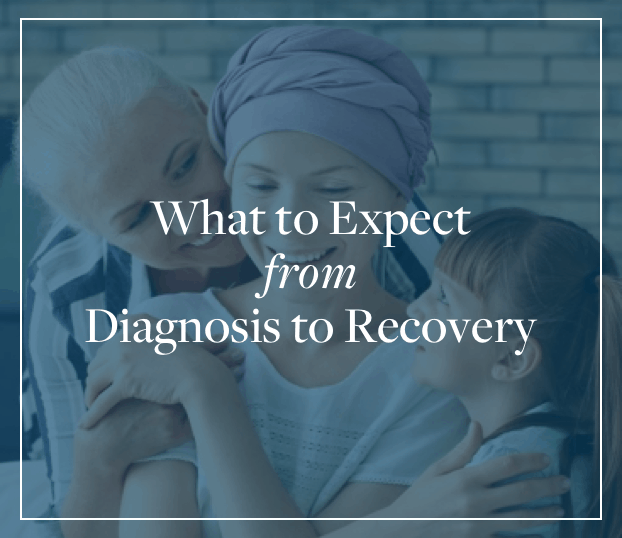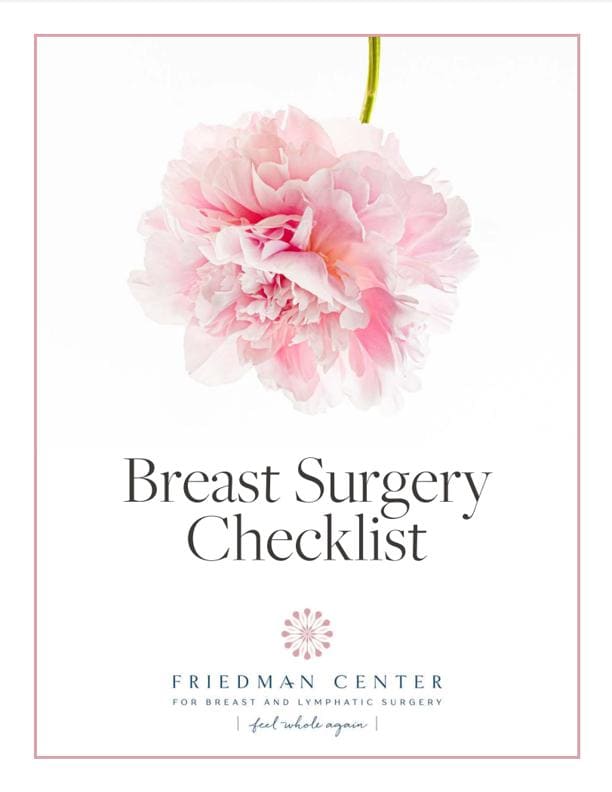About Breast Cancer
Breast cancer affects about 13% of women during their lifetime. Understanding how breast cancer develops, underlying risk factors, and available treatment options can help you make the best decisions for your unique set of circumstances.
What Is Breast Cancer?
Breast cancer is a type of tumor that develops in the tissue of the breast.
Like all cancers, breast cancer starts with the body’s own cells. A genetic abnormality in some of the cells triggers unusual behavior. Instead of dying off, these abnormal cells multiply and divide, in some cases quite rapidly. Eventually, the cells form a mass, or tumor.
Not all tumors are cancerous. Non-cancerous tumors are groups of normal, healthy cells and are generally considered benign. In many cases, benign tumors can be left untreated.
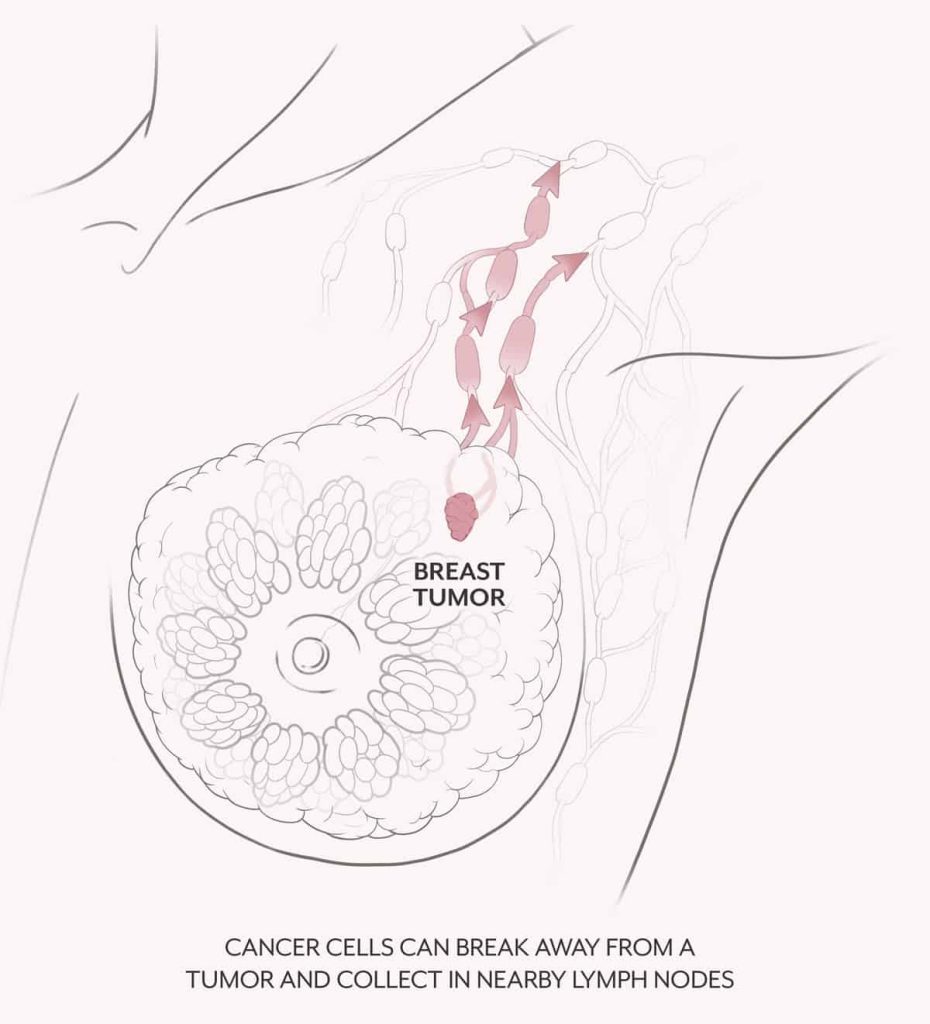
What Causes Breast Cancer?
While breast cancer is always caused by cells that are genetically abnormal, the reason for those abnormalities isn’t always known.
Some people have genetic mutations that are inherited, such as the BRCA gene, that make them more susceptible to developing breast cancer.
Other factors, such as age and lifestyle choices (e.g., smoking, diet, exercise, alcohol intake, and weight) can affect the risk of developing breast cancer as well. And 99% of breast cancers occur in women.
However, these risk factors can’t predict when or even if an individual will develop breast cancer. That’s why breast cancer awareness, screening, and early detection are so important in treating this disease.
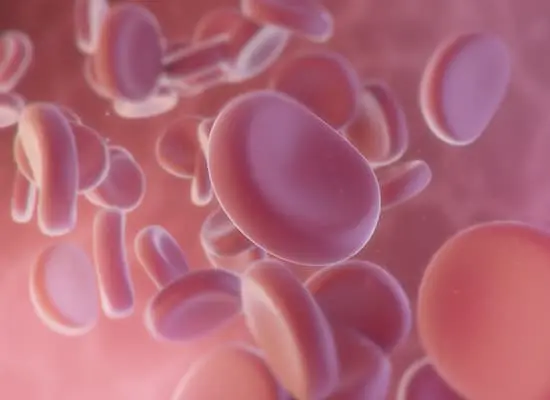
What Causes Breast Cancer?
While breast cancer is always caused by cells that are genetically abnormal, the reason for those abnormalities isn’t always known.
Some people have genetic mutations that are inherited, such as the BRCA gene, that make them more susceptible to developing breast cancer.
Other factors, such as age and lifestyle choices (e.g., smoking, diet, exercise, alcohol intake, and weight) can affect the risk of developing breast cancer as well. And 99% of breast cancers occur in women.
However, these risk factors can’t predict when or even if an individual will develop breast cancer. That’s why breast cancer awareness, screening, and early detection are so important in treating this disease.
Types of Breast Cancer
Breast cancer can originate in one of several types of breast tissue: the lobules, which produce milk; the ducts, which bring milk to the nipple; or the stromal tissue, which makes up the connective tissue of the breast.
The “stage” of breast cancer is assessed based on several criteria. The TNM staging system used to be the only system for grading breast cancer. It assesses tumor size (T); lymph node involvement (N); and metastasis (M).
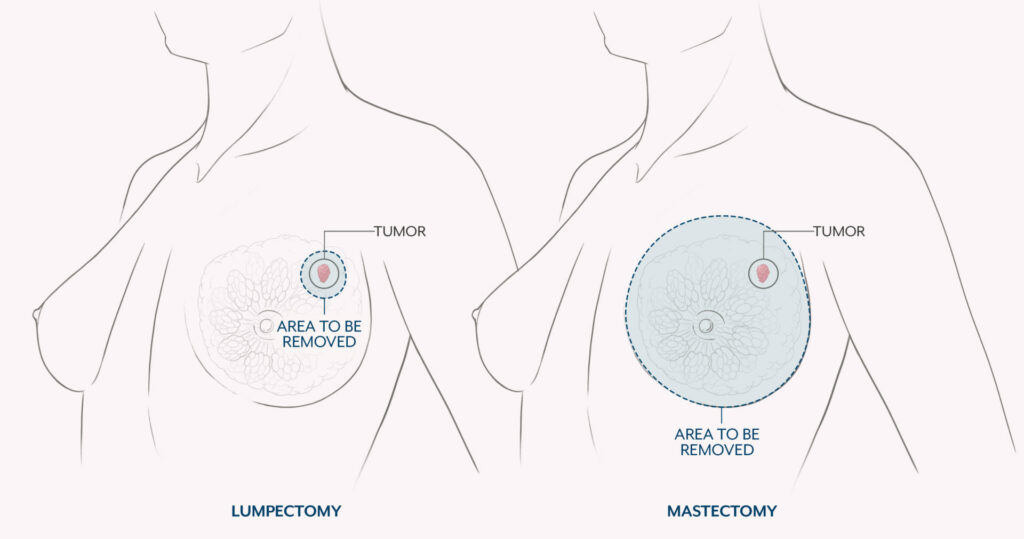

Other factors are now commonly used in conjunction with TNM to describe breast cancer, including:
• Tumor grade, which compares cancerous cells to the body’s normal, healthy cells
• Estrogen- and progesterone-receptor status, which evaluates whether cancerous cells have receptors for these hormones
• HER2 status, which looks at how much HER2 protein cancerous cells produce
• Oncotype DX score, which is only used under certain conditions (estrogen-receptor-positive, HER2-negative, and no cancer cells in the lymph nodes)
How Does Breast Cancer Spread?
If untreated, a cancerous tumor in the breast will grow larger as the cells continue to rapidly multiply.
Breast cancer can also spread, or metastasize. Metastasis refers to what happens when cancerous cells move or migrate to another part of the body. Breast cancer may metastasize if cancer cells get into the lymph nodes of the armpit, at which point they travel through the lymph system to other tissues.
To prevent the spread of breast cancer, lymph nodes in the armpit are assessed as part of a treatment plan. They may receive radiation therapy or be removed during breast surgery.
If you’ve received a breast cancer diagnosis or are at high risk for developing breast cancer in your lifetime, we’re here to support you.
The Friedman Center partners with the Northwell Health System, whose hospitals and cancer programs are nationally recognized for excellence and accredited by leading organizations in cancer care, including the National Accreditation Program for Breast Centers (NAPBC).
This accreditation means that we have voluntarily gone through a rigorous peer review process to ensure we meet nationally accepted standards, have well-qualified staff to diagnose and treat your cancer, and employ technology that meets or exceeds guidelines so that you receive the safest, highest quality care. Learn about Northwell Health’s cancer programs here.


























